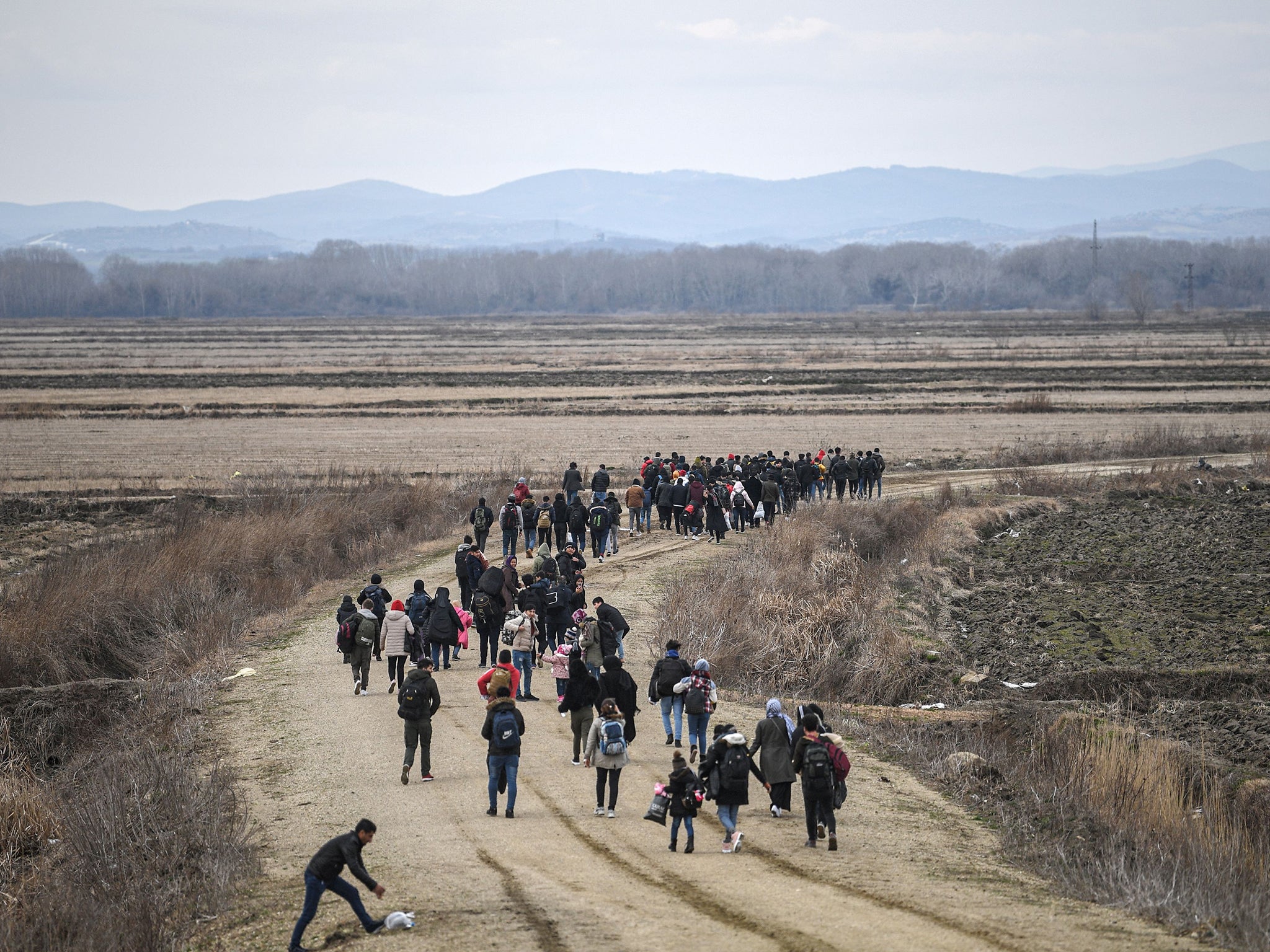Now is not the time for the Home Office to turn its back on refugees
The right to seek asylum is universal and does not depend on how people travel

Your support helps us to tell the story
From reproductive rights to climate change to Big Tech, The Independent is on the ground when the story is developing. Whether it's investigating the financials of Elon Musk's pro-Trump PAC or producing our latest documentary, 'The A Word', which shines a light on the American women fighting for reproductive rights, we know how important it is to parse out the facts from the messaging.
At such a critical moment in US history, we need reporters on the ground. Your donation allows us to keep sending journalists to speak to both sides of the story.
The Independent is trusted by Americans across the entire political spectrum. And unlike many other quality news outlets, we choose not to lock Americans out of our reporting and analysis with paywalls. We believe quality journalism should be available to everyone, paid for by those who can afford it.
Your support makes all the difference.The UK has long history of giving protection to those who need it the most, whether that was European Jews fleeing the Nazis, Hungarian dissidents forced to leave their homes during the Cold War, or, more recently, Syrian families desperate to start a new life after their cities were bombed into ruins.
Wherever they came from, whatever way they made it here, those refugees had a chance to reach safety, put down roots, rebuild their lives and enrich our society. Yet the Home Office continues to defend its "New Plan for Immigration" – a controversial piece of legislation which will reduce the level of protection the UK gives to people who take irregular routes to seek safety here.
The right to seek asylum is universal and does not depend on how people travel – the 1951 Refugee Convention says that a refugee is a person who has fled their country and has a well-founded fear of persecution. By contrast, this government's upcoming asylum bill will discriminate against asylum seekers purely because of the route they have taken, through no fault of their own, to reach our country.
Many people don't have a chance to apply for a visa. They put themselves at the mercy of people smugglers not out of choice, but because it’s the only way to reach safety. Those Syrian children who crossed via Calais in 2016 were no less in need of help than those who arrived on a plane. Afghans who flee the Taliban often need to leave the country at very short notice.
A statement on this government’s website during Refugee Week - celebrated late last month - said that it would be sharing the stories only of refugees “who have come to the UK through government-backed legal routes”. This year’s theme of Refugee Week was “We Cannot Walk Alone” – it was not intended to be a political campaign about this government’s radical reforms to the asylum system.
Particularly as the legal routes spoken about are limited. The "New Plan for Immigration" makes much of Britain’s record on reuniting families and resettling refugees. But family reunion rights ended with Brexit, and have not been replaced. The Syrian resettlement scheme has ended. And although people from Syria will continue to be resettled this year, the "New Plan for Immigration" fails to commit to any ambitious pledges in future.
Just as a hospital wouldn’t turn away patients based on their mode of transport, for decades the UK has welcomed people fleeing war, terror and persecution, regardless of how they have reached our shores. These people in turn have gone on to make amazing contributions to our communities and national institutions such as the NHS.
Now is not the time to turn our back on this great British value of refugee protection that we should all be proud of.
Enver Solomon is chief executive of the Refugee Council
Join our commenting forum
Join thought-provoking conversations, follow other Independent readers and see their replies
Comments